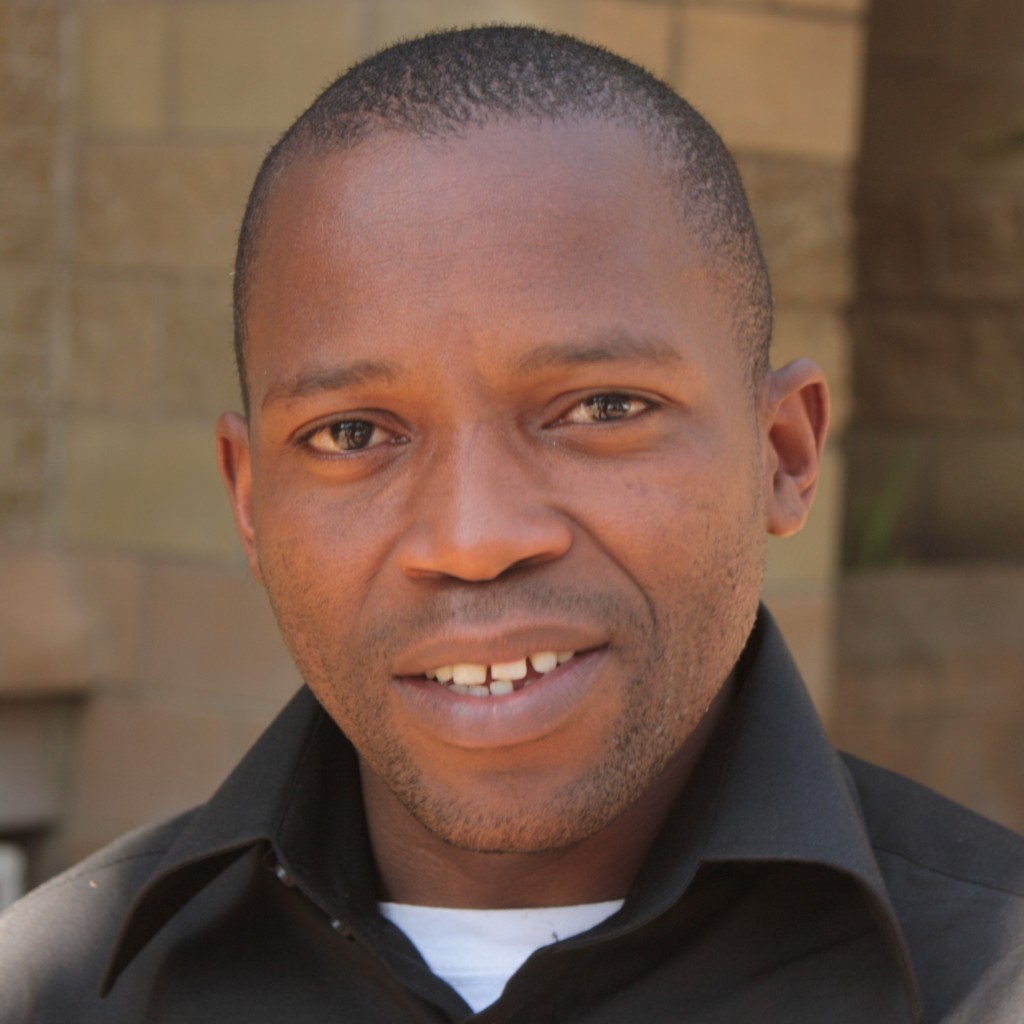Journalists@Work: Phathizwe-Chief Zulu
 In the next of our Journalists@Work series, we meet Mongezi Chief Zulu, a print journalist in the tiny kingdom of Swaziland in southern Africa. Under the byline Phathizwe-Chief Zulu, he writes developmental, political and economic features for the Nation, a monthly political magazine with a reputation for critical reporting. The thirty eight year old also works for AFP as a stringer, having previously worked for AP for several years.
In the next of our Journalists@Work series, we meet Mongezi Chief Zulu, a print journalist in the tiny kingdom of Swaziland in southern Africa. Under the byline Phathizwe-Chief Zulu, he writes developmental, political and economic features for the Nation, a monthly political magazine with a reputation for critical reporting. The thirty eight year old also works for AFP as a stringer, having previously worked for AP for several years.
Swaziland, sub-Saharan Africa’s last absolute monarchy, has little independent journalism, rating 155 out of 179 countries on Reporters Without Borders’ Press Freedom Index. Broadcast media are heavily censored and most mainstream newspapers engage in intense self-censorship. Zulu is extremely proud of working for one of the few independent voices in his country. DW Akademie’s Kate Hairsine spoke to Zulu about his work.
Why did you decide to become a journalist?
During my school days, I wanted to be a singer and when my friend asked what I would do if I couldn’t become a singer, I said I would become a journalist. At school I liked history, I liked the English language, I liked anything that didn’t deal with mathematics and science. Journalism for me came naturally. I enjoy debating issues and informing and educating. I also enjoy having interaction with people and empowering people and being empowered at the same time myself.
What do you like about being a journalist?
Number one is that you contribute to nation building. Even though the role of a journalist isn’t so visible, the opportunities that come with reporting and interviewing ministers and other influential figures make me feel that I am doing something for the nation. I am doing a job that I like and I am appreciated by all sectors of community. That makes me feel good.
What do you hate most about being a journalist?
The pay because it isn’t every good! Plus there is the pressure that comes with the job and the editors. The editors, wow, you can come up with a story and then you are told this is not supposed to happen. And of course, some people, especially influential figures can mess up your whole day when you have to interview them and then they don’t respond to your questions. I also don’t like it when we betray the calling of journalism. It doesn’t happen in my organization but in the media in general.
Tell me about a recent story that you have worked on.
There is a story about the minister of health that I was pursuing. During his campaign in 2008, he promised a certain community a water project. Upon arrival in parliament as a member of parliament and subsequently becoming minister, he didn’t deliver. I went to the community and the community members said a lot of interesting stuff and I wrote the story. It was just election time in Swaziland so he was trying to use his past achievements for the elections but this story discredited him.
It must be difficult doing critical stories in Swaziland.
One thing in Swaziland, as a journalist, you have to be courageous. You also have to stick to the basic principles of journalism and remember that you are accountable to the readers and to the general public and get your facts right. The trick is, you have to be accurate with your information because they are watching you. They will threaten you. So if you are accurate and your facts are right, then they don’t have anything to use against you.
Also, other journalists can stir up problems. That becomes an issue when you become a house that is divided amongst itself because some of the journalists are divided amongst themselves. So most of the time, it’s not the politicians you find yourself fighting, it’s the other journalists who think that you are anti-monarchy or you are anti-government.
Is there a story you have covered that has particularly affected you?
You will find that there is a lot that happens along the way but you continue soldiering on and then you forget about it. It’s like in any professional work. I have had disappointments and explosive situations where I felt like murdering someone. There has been times I was extremely happy and felt like I deserved to have a medal because of a story but you soldier on.
What tools are essential for your job as a print journalist?
Currently, I make good use of my mobile phone which has a sliding keyboard. But I need to buy a laptop to make my job more professional. Otherwise I use the phone and Internet and at times, I need to use a scanner.
What media do you consume?
I read newspapers, and listen to the radio and watch television. But newspapers hardly reach my area in the village and we have limited radio stations so my choice is limited.
Do you use any social media to do your work.
I visit Facebook everyday but I use it to chat with my friends. I also have a twitter account.




Feedback